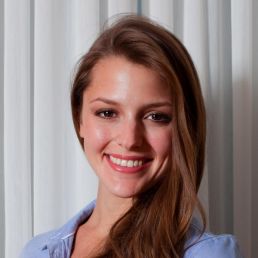My scientific journey began at York University, when I joined Dr. Scott Kelly’s lab as an undergraduate student and immediately became hooked on research. I love untangling the complexity of animal cells, collaborating with other scientists, and contributing to the scientific community with my findings. At the end of my undergraduate degree, my supervisor and colleagues encouraged me to start a master’s degree.
I believe I have certain qualities that are useful in science—creativity, curiosity, determination—that could be seen in other aspects of my life. For example, I love to cook! Cooking is an incredibly creative process for me – I love to watch simple ingredients transform when combined and heated. And in essence, cooking was just science experiments that I could do at home.
In high school, my curiosity drove me to learn what it takes to run a successful business, which allowed me to start my own photography company. In the lab, this trait allowed me to immerse myself in experiments and the scientific literature. As for determination, I have been involved in sports since childhood, from skiing, to martial arts, to Olympic weightlifting, and learned that many things in life are definitely a case of mind over matter!
I knew I had these personality traits, but it was the support and encouragement of the people around me that made me feel like I could do this…that I could become a successful researcher one day.
So, I committed to a master’s degree in the Kelly Lab, where I studied the skin barrier properties of aquatic & semi-aquatic animals. My award-winning thesis work and self-funded international collaboration showed that the skin is a dynamic barrier that responds to endocrine hormones, external salinity, and pathogens.
For my PhD thesis, I chose the Senatore lab at UTM so I could work on neuroscience and animal evolution. I work on an organism called Trichoplax adhaerens, an ancient animal that lacks a nervous system yet expresses many neuronal genes. Trichoplax is a great model for studying how certain neuronal proteins have evolved over time.
Over the course of my scientific career I realized that, even though science is incredibly rewarding, it can be intense and involve long hours, hard work, and dealing with bouts of imposter syndrome. Sometimes in academia, you doubt yourself and think “Can I do this?” and the sports mantra “mind over matter” fails to instill confidence. I realized that what helps me the most is the encouragement and support from my mentors, colleagues and people close to me. I am not certain that I would have come this far without them.
Realizing the importance of good mentorship in a scientist’s success, I help future generations of scientists succeed through science outreach programs, mentorship in the lab, and connecting graduate students to mentors outside of their personal circle. Personally, when I receive national awards from NSERC, or departmental awards like the Hone-Buske Award, I feel like I am on the right track and that I can do this. I want to help others feel the same way, so I established and chaired committees that provide undergraduate students with awards for their research.
Over the years I have learned that a lot of success in science is believing that “you can do this” and having a network of people who will remind you when you forget. Because of this, in addition to discovering more about the world around us, my mission as a scientist is to enable future generations of scientists to succeed.

